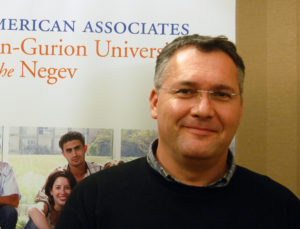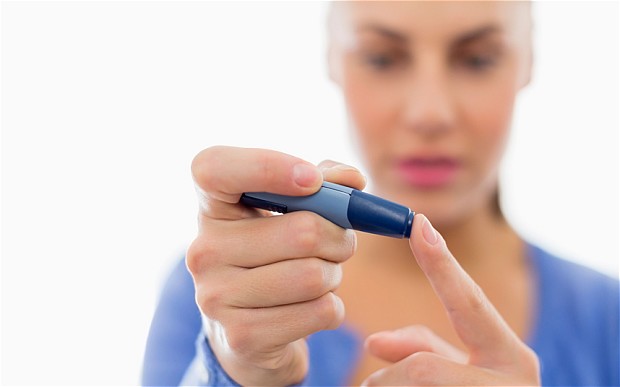
New Diabetes Hope with AAT Therapy
October 17, 2013
Jewish Journal of Los Angeles — Israeli researcher Dr. Eli Lewis never forgot how a childhood friend with diabetes repeatedly injected himself with insulin shots.
“I thought he was a hero,” said Lewis, director of the Clinical Islet Laboratory at Ben-Gurion University of the Negev in Israel. “I was blown away by his bravery.”
As a post-doctoral fellow at the University of Colorado, Lewis thought of an idea that might help his friend. The lab was looking at how inflammation affected organ transplant rejection. Lewis realized inflammation and cell injury might play an unexplored role in type 1 diabetes, a disease in which the immune system destroys insulin-producing cells in the pancreas.
His idea evolved into clinical trials to test whether an existing drug — one replicating a substance naturally produced by the body — could eliminate the inflammation driven by cell injury that is involved in type 1 diabetes. Results of the trials, Lewis told the Journal by phone, “have been pretty striking.”
The body produces a substance called alpha-1 antitrypsin (AAT) that helps repair tissue and reduces inflammation, but AAT doesn’t function in patients with type 1 diabetes. The body naturally produces AAT in the liver. It has also been available in drug form for about 30 years as a treatment for a rare form of emphysema.
The clinical trials demonstrated that when recently diagnosed patients received injections of functioning AAT in the form of the drug, they regained the ability to fight inflammation, Lewis said.
Patients with type 1 diabetes who received treatment the soonest after diagnosis experienced the greatest benefits. About a third no longer showed any signs of diabetes — they were able to completely stop using insulin via syringe or other method to regulate their glucose levels.
Those who were not “cured” were nonetheless able to forgo taking insulin at night. Treatments were limited to patients who had been diagnosed within one year, before damage to the pancreas is thought to be irreversible, Lewis said.
“One father of a child in the trial told me he couldn’t remember the last time he had a full night’s sleep,” said Lewis, referring to the father’s need to supervise his child’s nighttime insulin injections.
Three clinical trials were held at Ben-Gurion University, the Barbara Davis Center for Childhood Diabetes at the University of Colorado School of Medicine and the Joslin Diabetes Center, which is affiliated with Harvard Medical School. Patients received weekly doses of AAT for between eight and 12 weeks. Two new trials involving additional institutions are now starting to fine-tune timing and dosage.
Lewis says that AAT also shows promise as a therapy for people with type 1 diabetes who are beyond a year post-diagnosis. Islet cell transplantation is an existing alternative to insulin injection. In this treatment, after receiving injections of insulin-producing cells from a donor pancreas, a patient’s own pancreas regains its ability to produce insulin.
However, the treatment loses effectiveness eventually because the transplanted cells are rejected and damaged by the body’s immune system in a matter of years. AAT seems to reduce the inflammation, allowing the new cells to remain effective indefinitely, according to pre-clincal trials.




